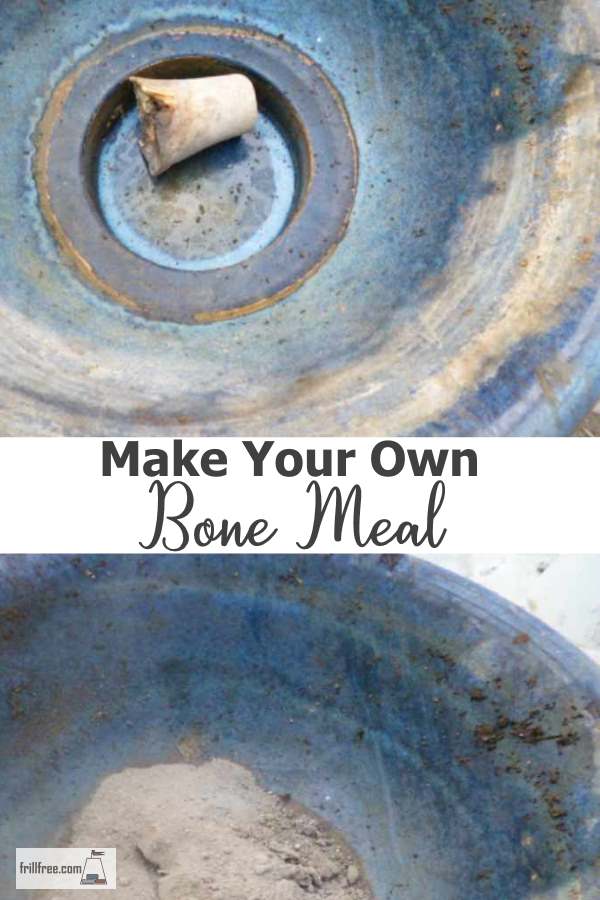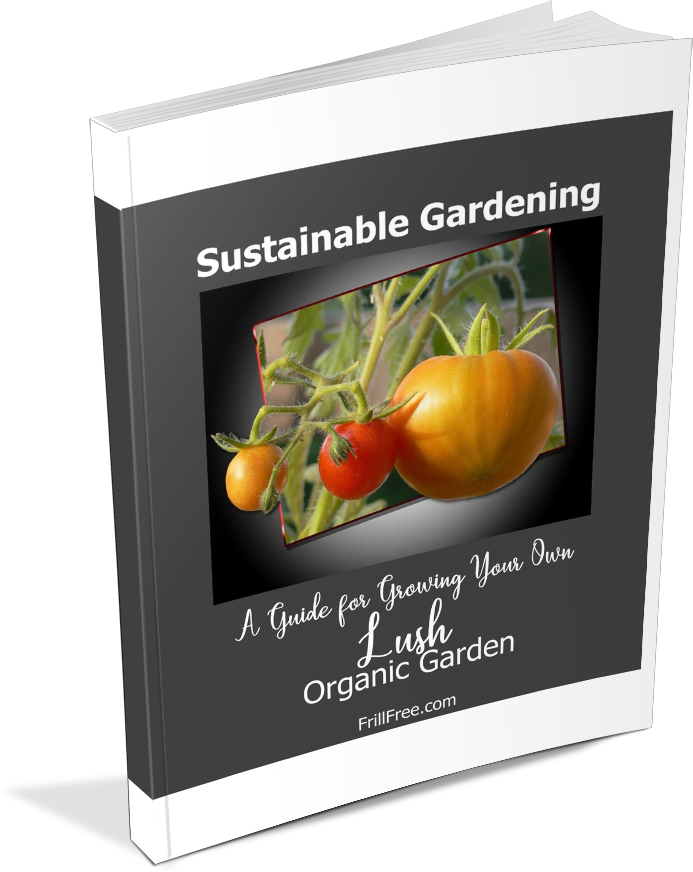- Homesteading
- Soil Fertility
- Make Your Own Bone Meal
Make Your Own Bone Meal
Simple Ingredients + Time
I could have called this 'quick homemade bone meal' but that wouldn't be true - the critical ingredient is time to let it all happen.
There are only two ingredients (other than the time it takes) to make this; old bones that the dog has chewed for a while to get all the meat off first, or that you've used for making stock out of.
The
bones can be from any animal, whatever you have handy. Chicken bones
break down much more quickly than beef bones, just because of the
smaller size. To be completely organic, make sure the bones are from
organically raised animals.
Don't use any that are very fresh or you'll run the risk of it smelling really really bad. Keep it away from dogs or other animals - remember that wood ashes are caustic and exposure (or ingestion) of them can cause issues.
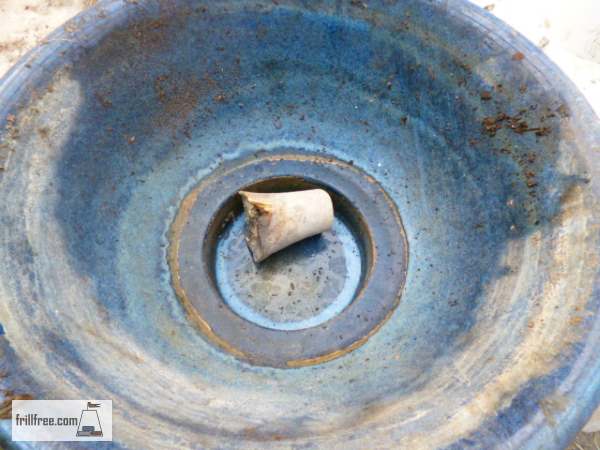 Making your own bone meal starts with bones - shown, beef bone chewed by the dog for a while...
Making your own bone meal starts with bones - shown, beef bone chewed by the dog for a while...The best container is glass or pottery. Don't use plastic which will just get brittle and break down, or metal which will rust.
The lid can be any kind of material, as the ashes won't be coming in contact with it.
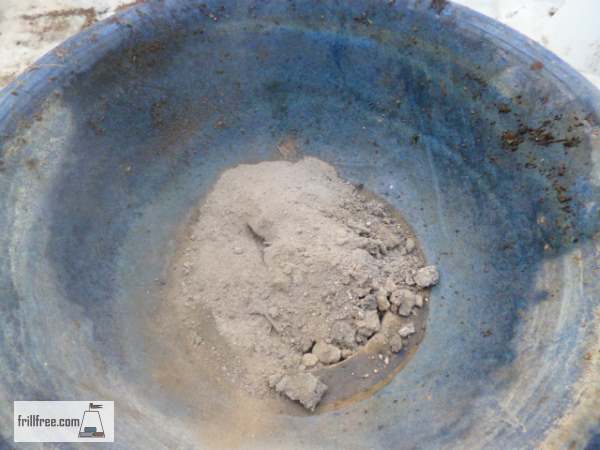 Wood Ashes from the wood stove cooled enough to handle...
Wood Ashes from the wood stove cooled enough to handle...If you burn wood to heat your house, you'll have some wood ashes when you clean out the wood stove. These are the other main ingredient - make sure they've cooled enough to handle.
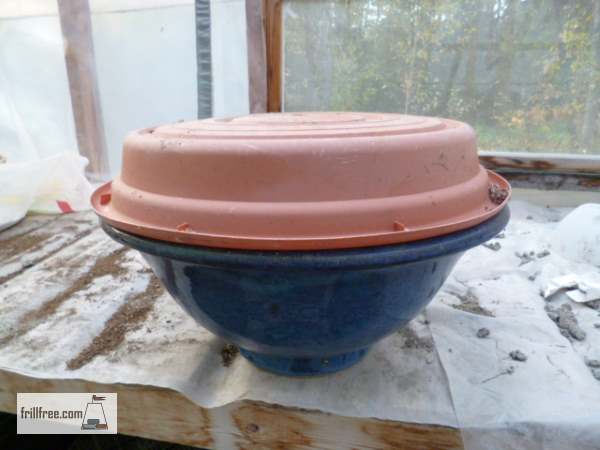 Cover with something to keep out vermin - in this case, plastic is fine as it won't come in contact with the caustic ashes...
Cover with something to keep out vermin - in this case, plastic is fine as it won't come in contact with the caustic ashes...Layer the bones with ashes, and then in a few months you can peek; the bones should be brittle and easy to break apart.
Now this will never be like the bone meal you buy at the store, because you need a mechanical pulverizer to break up the bones.
Using a hammer is effective, but wear safety glasses to prevent eye damage from the shards.
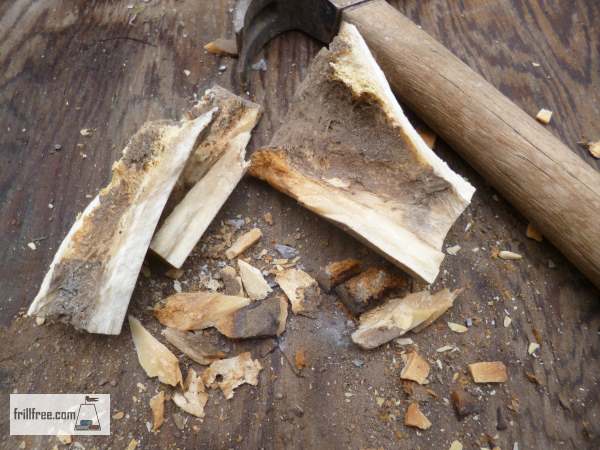 Pulverize the bones with a hammer - wear eye protection!
Pulverize the bones with a hammer - wear eye protection!Another method to make your own bone meal is to simply put the bones in the fire pit, and let them break down in the heat of your next few bonfires.
The mixture of wood ashes, bones and charcoal (biochar) can be added to the compost bin, or just placed with the bone fragments into the garden. There, they'll release their mineral content slowly, over time.
You can use a hammer to smash the bones into smaller pieces, and add them to your compost if you want to spread it around, or place them in a planting hole of calcium loving plants like tomatoes or any kind of bulb forming plant. other plants like bone meal too - anything that prefers a sweet soil, like cruciferous vegetables.
